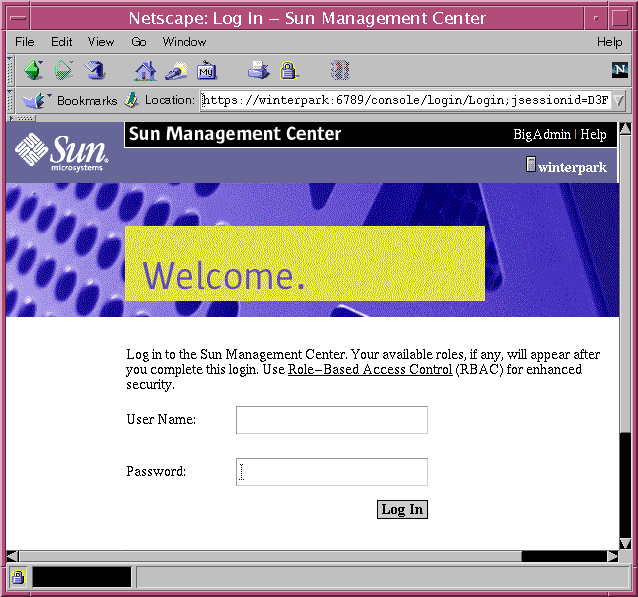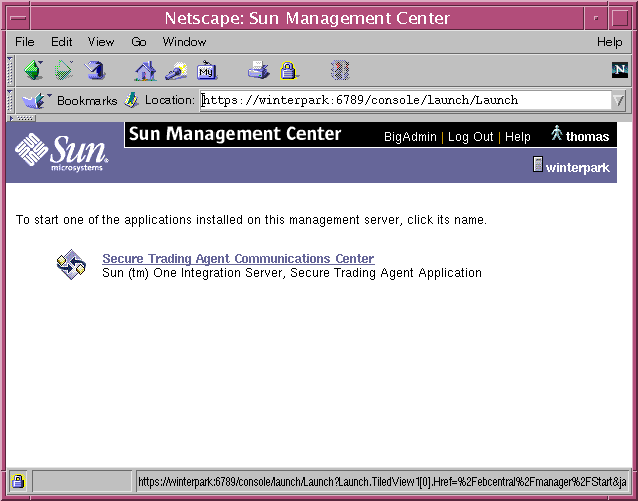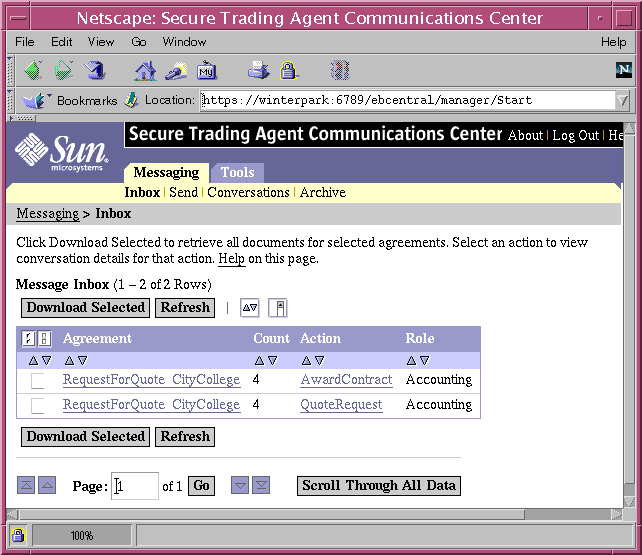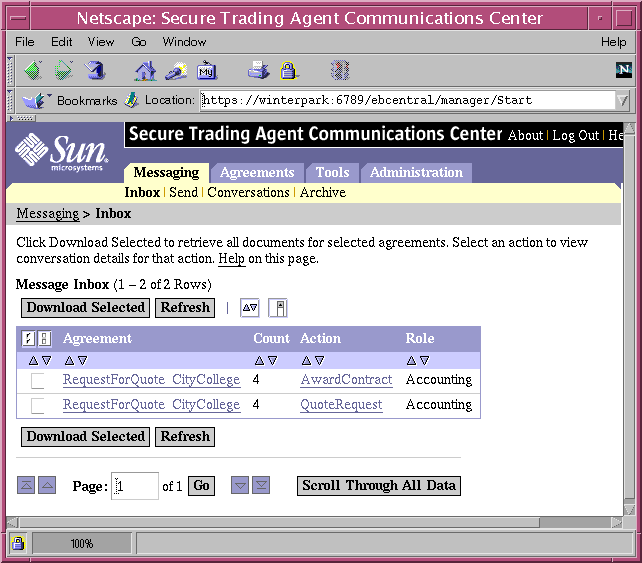|
|
| Sun ONE Integration Server, Secure Trading Agent 1.0 User's Guide |
Chapter 2 Secure Trading Agent Communications Center
This chapter introduces the Secure Trading Agent Communications Center and includes procedures on how to launch it.
All Secure Trading Agent users should read this chapter.
Starting the Communications Center
The Secure Trading Agent Communication Center is available to all Secure Trading Agent users to send and receive messages from deployed agreements. The Communications Center provides additional interfaces to Secure Trading Agent administrators for authoring, editing, deploying, and administering agreements.
To open the Communications Center
- Make sure that Secure Trading Agent is installed and properly configured on your system and that all required services are running.
Refer to the Secure Trading Agent Installation Guide for information on installing Secure Trading Agent. Refer to Chapter 7, "Secure Trading Agent Administration," for information on configuring your system and managing the required services.
- Open the Sun Management Center using the instructions for your platform listed below:
- Windows Platforms
From the Start > Programs > Sun Microsystems menu, select: Secure Trading Agent > Applications > Communications Center
The web browser for your system opens to a page with a link to the Sun Management Center Welcome page. Select the link to open the Sun Management Welcome Center, which is illustrated in Figure 2-1.
Alternatively, you can open the following link in your web browser to access the Sun Management Center Welcome page:
https://<server>:6789
server is the host on which you installed Secure Trading Agent.
- Solaris™ Platforms
Open the following URL in your web browser to access the Sun Management Center Welcome page:
https://<server>:6789
server is the host on which you installed Secure Trading Agent.
Figure 2-1 Sun Management Center Welcome Page

- Log in to the Sun Management Center using your user name and password.
If you do not know your user name and password, check with your system administrator or Secure Trading Agent administrator.
Figure 2-2 Sun Management Center Applications

- Select the Communications Center.
The Communications Center opens. The interfaces available to you in the Communications Center depends on whether you are a regular user or are a Secure Trading Agent administrator, as described in the following section "User Privileges."
User Privileges
Secure Trading Agent recognizes two types of users, a Secure Trading Agent administrator and a Secure Trading Agent regular user. An administrator has configuration and administrative privileges not available to regular users, as described in "Secure Trading Agent Administration".
Secure Trading Agent Regular Users
For Secure Trading Agent regular users, the Communications Center provides the following interfaces, as depicted in Figure 2-3:
- Messaging Tab
Use the Messaging tab to send and receive messages from deployed agreements. For more information, refer to "Conversations".
- Tools Tab
The Tools tab provides tools to monitor Secure Trading Agent messaging, set user preferences, and view message logs from the Secure Trading Agent runtime.
Figure 2-3 Communications Center, Regular User

For information on regular user tasks refer to the following chapters:
Secure Trading Agent Administrators
For Secure Trading Agent administrators, the Communications Center provides the interfaces available to regular users plus the following additional interfaces, as depicted in Figure 2-4:
- Agreements Tab
Use the Agreements tab to create and edit agreements and to import, deploy, undeploy, and delete agreements. When creating or editing agreements, the Communications Center launches the Secure Trading Agent Agreement Editor.
- Administration Tab
Use the Administration tab to manage local party identifiers, to provide access to certificate and keystore files, and other administrative tasks.
Figure 2-4 Communications Center, Administrator

For information on administrative tasks refer to the following chapters: